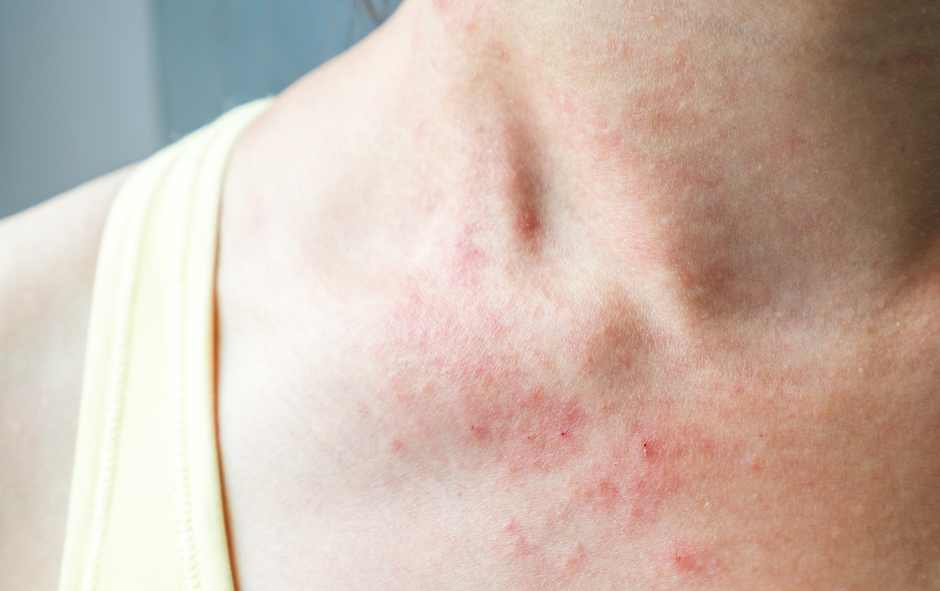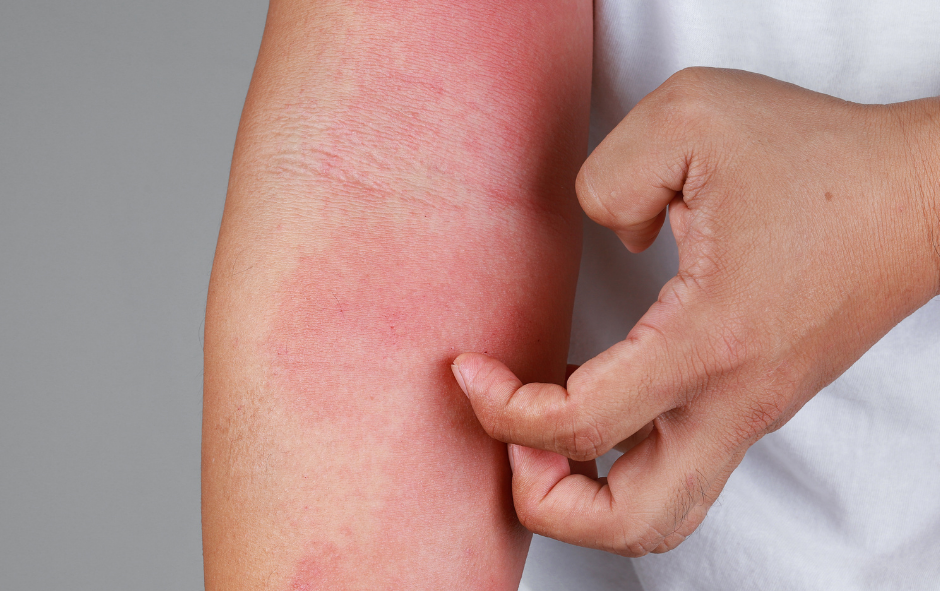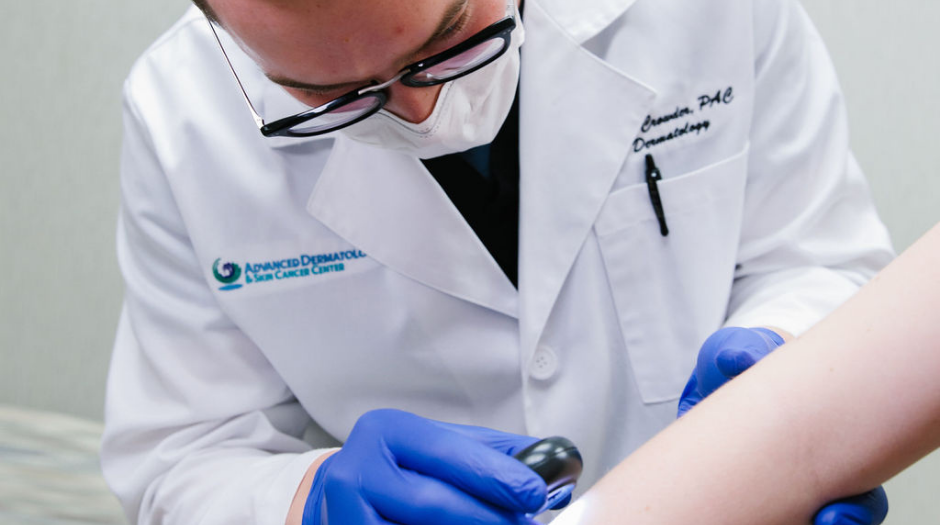Winter Dry Skin Care – Senior Edition
Jack Frost may be nipping at more than your nose this winter. Here are a few winter dry skin care tips:

Harsh winter weather can be tough on sensitive, older skin. Freezing temperatures and cold winds strips skin of its vital moisture, leaving it prone to itching, cracking and bleeding. Broken skin is more than irritating and can result in infection, if not careful.
Unfortunately, even if you are mainly indoors, your skin can be stripped of vital moisture. We run the heat more in the winter, which reduces the humidity level in your home, causing dry skin.
Seniors Are More Susceptible to Dry Skin and other Skin Disorders
As we get older, normal age-related changes cause our skin to become thinner, drier, and more fragile. Lifestyle factors, such as sleep reduction, sun exposure, alcohol consumption, weight loss/gain, diet, stress and smoking, can also accelerate and/or exaggerate these changes. Our epidermis, the outermost layer of our skin, is meant to insulate and protect us from germs, injuries and the elements, but it loses its resilience over time. For example, conditions like skin cancer and senile purpura (skin that bruises easily) are two ailments that often strike the elderly, regardless of the season.
Harsh winter weather further compounds these problems, leaving older adults with itchy, irritated skin and certain types of rashes. There are two seasonal skin issues that physicians commonly see in seniors, but can occur in all ages: xerotic eczema, a form of eczema that occurs when the skin becomes abnormally dry, itchy and cracked and seborrheic dermatitis, a common skin condition that mainly affects your scalp, causing scaly patches, redness, and stubborn dandruff.

Xerotic eczema is highly seasonal and characterized by a dry, red, flaky rash that can occur on the legs, back, and arms. Without treatment, the rash can worsen and result in cracks, fissures, and sores that are susceptible to infection—especially if the affected areas are scratched. Like many other types of eczema, treatment is typically done with topical and oral medications and lifestyle changes. Generally, treatment for eczema begins with daily use of moisturizers and other emollient-containing products. Frequent bathing in hot water can also be a culprit. Luke warm water is recommended as hot water can strip skin of moisture, the opposite of what you are trying to accomplish.
Seborrheic dermatitis is another skin condition that may flare up in winter. It is marked by patches of itchy, flaky skin, typically in oily areas like the scalp, eyebrows, nose, and chest. The yeast that causes this condition thrives at cooler temperatures and in low humidity. Medicated shampoos, creams and lotions are the main treatments for seborrheic dermatitis.
6 Winter Skin Care Tips for Seniors
Fortunately, there are some steps that seniors and family caregivers can add to their skin care regimens to minimize discomfort and complications this winter. Here are some dry skin care tips:

- Moisturize Regularly
Senior skin loses moisture much more easily, and dryness is a direct or contributing cause of many types of skin conditions. Moisturize your skin in the winter months. Lotion may be enough other times of the year, but you may want to look for heavier creams or ointments in the winter. Just be sure to check the ingredients. Many heavy-duty emollient moisturizers contain lanolin, which some people may be sensitive to. Vaseline (petroleum jelly) is a skin saver if you can tolerate the greasy consistency. Apply immediately after showering to lock in moisture. Then cover with clothing to aid absorption. - Stay Hydrated
Most people assume that dehydration is only a concern during the hot summer months, but you can’t skimp on fluids just because it’s cold outside. Moisturize from the inside out by drinking eight glasses of water a day to help with dry skin (unless you have a condition that requires you to limit fluids). One way to know if you’re getting enough water is to check your urine. Certain medications may affect urine color, but most people can aim for shades that lie somewhere in the range of pale to moderately yellow. - Bundle Up
Before braving the frigid outdoors, be sure to cover as much exposed skin as possible to prevent dry skin. The skin on your hands and feet is particularly susceptible to frostbite and windburn, and don’t forget to protect your ears, neck, and face too. Dress in warm layers and try to top them off with an insulating, windproof fabric in particularly cold and/or windy conditions. This will help prevent painful, chapped skin that can take a while to heal. - Wear Sunscreen
Not just for summer, sunscreen is important all year long and should be a regular part of your everyday routine, even when you aren’t planning on being in direct sunlight as damaging rays can affect your skin through windows, like the windows in your car. Further these damaging rays are also present even on cloudy winter days. Sun protection is especially important in areas prone to snow. UV rays easily reflect off of snow and can still cause damaging sunburns despite overcast or cloudy conditions. - Take Care When Bathing
Prolonged exposure to very hot water actually strips the skin of moisture and natural oils causing dry skin. Be mindful of the water temperature when bathing and washing your hands, limit time spent in the shower or bath and try to use milder soaps and other bath products to minimize skin irritation and dehydration. Then follow up washing your hands and bathing with moisturizer as discussed above. - Embrace Humidity
Full room humidifiers can add moisture back to dry, artificially-heated air and help with dry skin. Not only does this benefit your skin, but it can also soothe dry and inflamed airways and scratchy eyes. Just be sure to follow the manufacturer’s instructions for usage, cleaning, and maintenance to avoid breathing in nasty germs like bacteria and mold that can grow in humidifiers.

If you are suffering from persistently dry, irritated skin, be sure to make an appointment with a dermatologist. These physicians specialize in treating skin conditions and can determine if something more serious is to blame. They can provide answers and treatment recommendations for quick relief.




